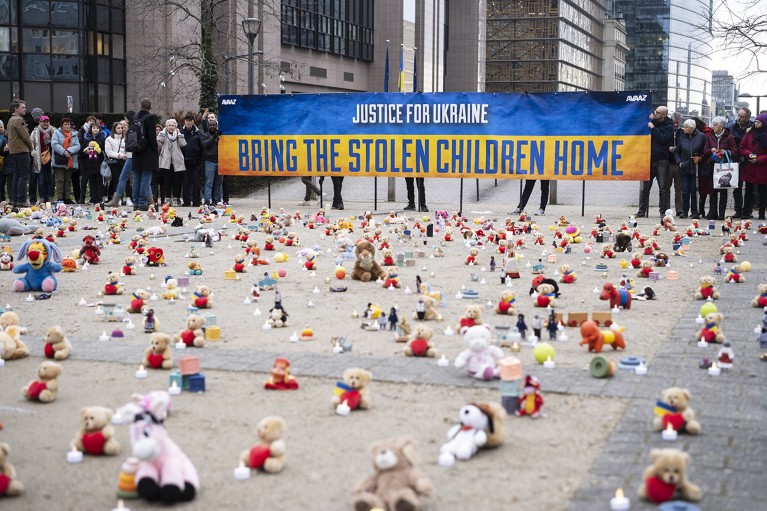- COMMENT
Build a DNA database to help identify children stolen in conflicts

In 2023, people lit candles beside teddy bears in Brussels to recognize children kidnapped from Ukraine and taken to Russia. Credit: Thierry Monasse/Getty
Access options
Access Nature and 54 other Nature Portfolio journals
Get Nature+, our best-value online-access subscription
$32.99 / 30 days
cancel any time
Subscribe to this journal
Receive 51 print issues and online access
$199.00 per year
only $3.90 per issue
Rent or buy this article
Prices vary by article type
from$1.95
to$39.95
Prices may be subject to local taxes which are calculated during checkout
Nature 637, 792-793 (2025)
doi: https://doi.org/10.1038/d41586-025-00073-8
References
Raymond, N. A. et al. Russia’s Systematic Program of Coerced Adoption and Fostering of Ukraine’s Children (Humanitarian Research Lab at Yale School of Public Health; 2024).
Murphy, E. E. Inside the Cell: The Dark Side of Forensic DNA (Nation, 2015).
Barnert, E. et al. Science 372, 1154–1157 (2021).
Amann, D. M. Mich. J. Int. Law 45, 305–379 (2024).
Wasylew, E. & Sedowa, M. In Search of Justice (Helsinki Foundation for Human Rights; 2024).
Competing Interests
S.H. is co-founder of a 510(c)(3) nonprofit DNA Bridge and an unpaid member of the ICMP Panel of Experts.

 Crack down on genomic surveillance
Crack down on genomic surveillance
 ‘I thought I had forgotten this horror’: Ukrainian scientists stand in defiance
‘I thought I had forgotten this horror’: Ukrainian scientists stand in defiance
 I fled the war in Ukraine. Now I work on ways to help the country’s soil heal
I fled the war in Ukraine. Now I work on ways to help the country’s soil heal





